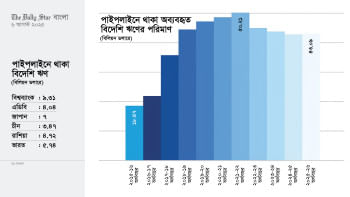Eminent domain: Has the doctrine become futile?

The power of the sovereign entity to take over or appropriate any land within its jurisdiction for any purpose that it seems necessary or beneficial would come under the doctrine of eminent domain. In other words, governments have the power and authority to appropriate land within their own borders for whatever use or uses that they see fit. However, in line with Fifth Amendment to the Constitution of the United States, most of the modern States used to place an important limitation on the power of eminent domain by adding a proviso in their legislative enactments that no private property be taken for public use, without paying just compensation.
Nevertheless, ironic though, seizing of private property for government use date back to colonial period, be that America or British-India. Colonial governments would appropriate private property to develop roads, accommodate their military and obtain numerous goods often even without compensating the owner and just compensation was not legally required as many believed that it was the duty of the property owner to forsake his property for greater good of the community. The principle of 'eminent domain' is the eventual outcome from such frustration that led to the incorporation of the clause of Bill of Rights in US Constitution in the 17th century.
Review of three landmark cases on eminent domain principle in the US will show that all of them resulted in the loss of private citizens property and how an abuse of power in relation to the application of eminent domain principle has expanded. In Barman v Parkers case, the property in question was in Washington DC, which is technically not considered as a state of USA and as such, over that area the Congress has such powers that were traditionally known as 'police power'. The Court in the District of Columbia opined that the requirement of having 'public purpose' did not exist in the taking of Barman's property and was therefore constitutional, since the redevelopment plan came from Congress. It seems they ignored the duty of the Court as the supreme judicial branch to interpret whether or not Congress is legislating in a constitutional manner and the fact that passing an Act by Congress (such as the Redevelopment Act of 1945) does not automatically guarantee that the Act is either in the best interest of the public or constitutional for that matter.
In the case of Hawaiian Housing Authority v Midkiff, the Hawaiian State Legislature passed the Land Reform Act, 1967 to seize property from 72 land owners who used to own around 51% land in the island by applying the principle of eminent domain and then sell them to those who were not able to buy property but to rent only. The Supreme Court endorsed such action holding that it would satisfy 'public purpose', but the provision only provides a guarantee that property will be used for public use only, thus 'use' is the term that is protected. However, the Court seems to employ the terms 'use' and 'purpose' as synonymous, but in fact, they are not and actions of the authority was endorsed by the Court on the basis of fulfilling of a public purpose or intent of the government, which is a flagrant attempt on the part of the State of Hawaii to take private property of someone and transfer it to others solely for their private use and benefit.
In the recent past too, in Kelo v City of New London case, the Supreme Court ruling (5:4) endorsed that economic development also qualified as valid public use. The dissenting judges were inclined to distinguish between the term 'use' and 'purpose'.
In the Indian sub-continent, there seems to be a clear trend on the part of the judiciary to come forward and mitigate the gap between legal requirements towards development and private rights. The Land Acquisition Act 1894 in India and the Land Acquisition and Requisition of Immovable Property Ordinance 1982 in Bangladesh grants governments with the power of having right of eminent domain. Above laws do not specifically include acquisition of land for a private company as a 'public purpose'.
However, in the last few decades, governments have been able to use the power of eminent domain to buy land for private industry by interpreting 'public purpose' to encompass development and industrialisation. But, judgments given by the Supreme Court of India that tend to uphold local peoples interest and struck down a number of acquisition moves by the government by holding that the manner of government's exercise of power (in terms of section 17 of the Land Acquisition Act 1894) are not tenable in law and in fact, those judgments along with widespread protests across India to some extent bring land acquisition to a halt.
Acquisition of land from farmers in 'Singura', in West Bengal of India raised a debate whether the principle of eminent domain should at all be used to get land for private companies. But, the Apex Court has opined that an attempt by the State to acquire land by promoting issues of public purpose to benefit a particular group of people and serve particular purpose at the cost of the interest of a large section of people, would defeat the very concept of 'public purpose'.
From Bangladesh perspective, the legal instrument to appropriate lands through eminent domain is the Land Acquisition and Requisition of Immovable Property Ordinance 1982. People having legal title to lands are only eligible under this law for compensation which is not always adequate and there is no provision to provide assistance to the affected people to move or settle elsewhere.
To bridge the gap that exists between a weak legal regime of land acquisition and the issues of resettlement of affected people, it has been seen in the recent past, the Bangladesh government has come forward to implement projects that safeguard the affected ones. In case of both Jamuna and Padma Bridge projects, the government realises that compensation alone but rather restoration of affected people's livelihood is also equally important. Be that as it may, controversy around the principle of eminent domain is as strong today as it was years ago. What is called for is to stop abuses of power by government officials in the application of the doctrine before it goes any further.
The writer is the Dean, School of Law, BRAC University.

 For all latest news, follow The Daily Star's Google News channel.
For all latest news, follow The Daily Star's Google News channel. 



Comments